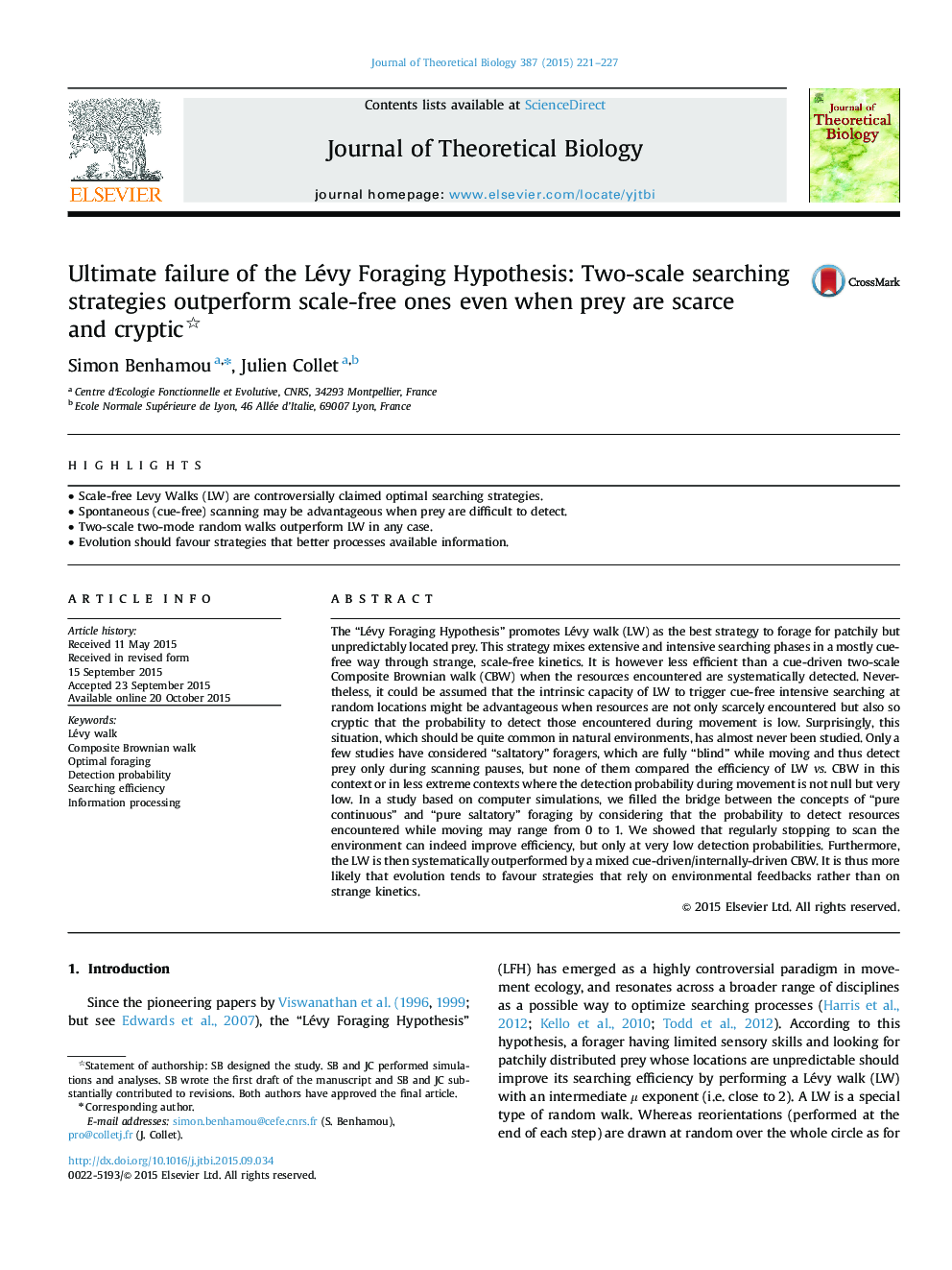| Article ID | Journal | Published Year | Pages | File Type |
|---|---|---|---|---|
| 4495965 | Journal of Theoretical Biology | 2015 | 7 Pages |
•Scale-free Levy Walks (LW) are controversially claimed optimal searching strategies.•Spontaneous (cue-free) scanning may be advantageous when prey are difficult to detect.•Two-scale two-mode random walks outperform LW in any case.•Evolution should favour strategies that better processes available information.
The “Lévy Foraging Hypothesis” promotes Lévy walk (LW) as the best strategy to forage for patchily but unpredictably located prey. This strategy mixes extensive and intensive searching phases in a mostly cue-free way through strange, scale-free kinetics. It is however less efficient than a cue-driven two-scale Composite Brownian walk (CBW) when the resources encountered are systematically detected. Nevertheless, it could be assumed that the intrinsic capacity of LW to trigger cue-free intensive searching at random locations might be advantageous when resources are not only scarcely encountered but also so cryptic that the probability to detect those encountered during movement is low. Surprisingly, this situation, which should be quite common in natural environments, has almost never been studied. Only a few studies have considered “saltatory” foragers, which are fully “blind” while moving and thus detect prey only during scanning pauses, but none of them compared the efficiency of LW vs. CBW in this context or in less extreme contexts where the detection probability during movement is not null but very low. In a study based on computer simulations, we filled the bridge between the concepts of “pure continuous” and “pure saltatory” foraging by considering that the probability to detect resources encountered while moving may range from 0 to 1. We showed that regularly stopping to scan the environment can indeed improve efficiency, but only at very low detection probabilities. Furthermore, the LW is then systematically outperformed by a mixed cue-driven/internally-driven CBW. It is thus more likely that evolution tends to favour strategies that rely on environmental feedbacks rather than on strange kinetics.
